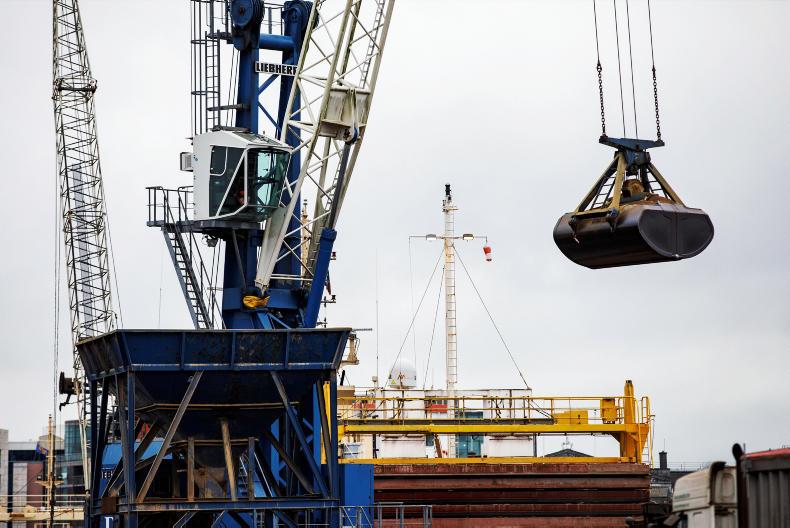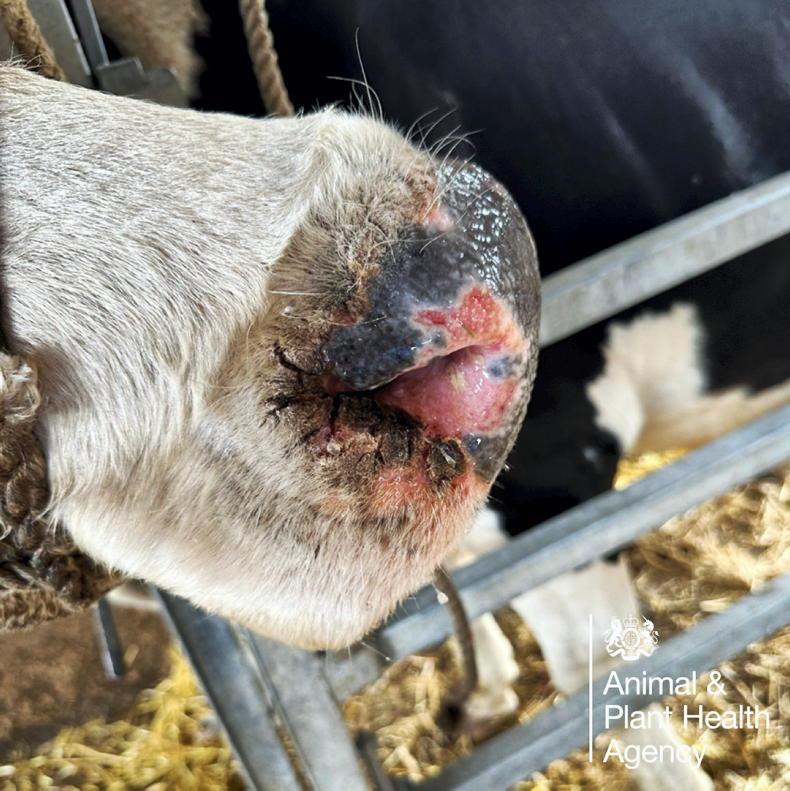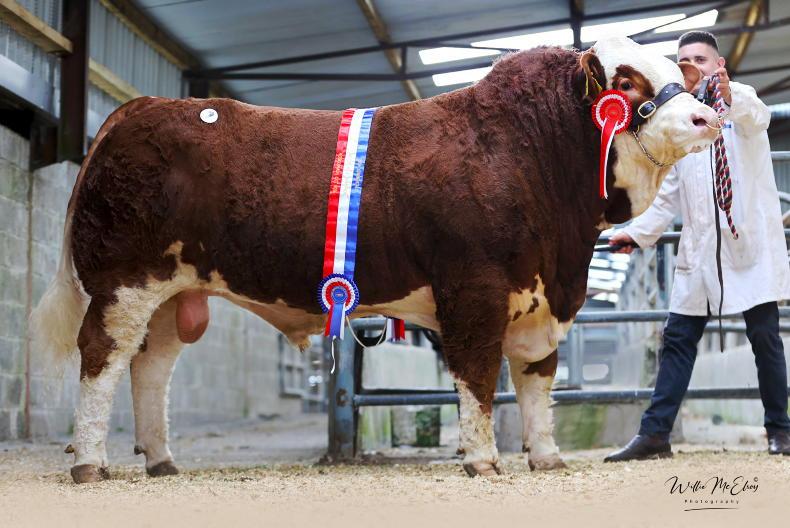The UK government has finally published the tariffs it will apply on goods in the event of a no-deal Brexit.
While most goods will face zero tariffs, that is not the case for food products, with a range of tariffs across dairy, pigs, sheep, poultry and beef. Those tariffs will apply to products landing at British ports from EU and non-EU sources.
However, in a move designed to avoid a hard border in Ireland, all goods moving from south to north will not face any checks or controls, and as a result, can come into NI tariff-free.
While there have been some conflicting briefings given by UK civil servants in the last few days, the Irish Farmers Journal understands that these goods will then be able to move tariff-free into Britain. The UK is clear that its approach is “temporary”, but it would effectively mean that NI becomes a tariff-free route to the market in Britain for Irish produce, and potentially also produce from elsewhere in the EU.
Industry sources suggest that officials are relying on the fact that ports at Larne and Belfast are relatively small, so the volumes of goods getting into Britain tariff-free will be limited.
They have also warned that NI faces traffic gridlock under this scenario.
Tariffs proposed
In terms of the tariffs proposed, they are generally significantly less than the tariffs currently applied by the EU. On butter it is 32% of the current tariff rate. On cheddar and pigs, it is 13%. While the UK has proposed retaining the EU tariff rate on sheep, it must be remembered that the sheep industry is heavily reliant on tariff free access to EU markets during peak season.
The tariffs proposed for a range of beef products work out at an average of 53% of the current EU rate. For boneless beef the current tariff is 12.8% of the value plus 177c/kg. The proposed UK tariff is 6.8% of the value plus 160c/kg. So if we take a Brazilian loin priced at 620c/kg, to get that product into the EU, the current tariff (or additional cost) is 256c/kg. Under the UK plan, this falls to 202c/kg.
However, for both poultry and beef, the UK has proposed having a tariff rate quota (offered to any importing country) that will allow product in either tariff free, or at reduced rates. On beef, the volumes proposed come to just over 230,000, significantly less than the 282,000t imported in 2018. However, in 2018 the UK exported nearly 100,000t of beef to EU countries. In a no deal scenario, and with EU tariffs applying, it must be assumed that the vast majority of this will remain on the home market.
Commenting on the no deal tariff plans, the President of the Ulster Farmers’ Union, Ivor Ferguson said they would devastate NI agriculture. “The tariff plans emphasise why a no deal Brexit must be avoided” said Ferguson.
His view was echoed by Conall Donnelly from the NI Meat Exporters’ Association (NIMEA) who said that it would effectively open up the UK market to increased competition. “You can’t have an independent trade policy, while at the same time having no checks on your border. The EU won’t undermine the integrity of their single market. We need to start talking about the integrity of the market in the UK” he said.
Read more
'Disaster', 'fatal blow': Northern Ireland reacts to no-deal Brexit tariffs
UK proposes tariff-free border trade
The UK government has finally published the tariffs it will apply on goods in the event of a no-deal Brexit.
While most goods will face zero tariffs, that is not the case for food products, with a range of tariffs across dairy, pigs, sheep, poultry and beef. Those tariffs will apply to products landing at British ports from EU and non-EU sources.
However, in a move designed to avoid a hard border in Ireland, all goods moving from south to north will not face any checks or controls, and as a result, can come into NI tariff-free.
While there have been some conflicting briefings given by UK civil servants in the last few days, the Irish Farmers Journal understands that these goods will then be able to move tariff-free into Britain. The UK is clear that its approach is “temporary”, but it would effectively mean that NI becomes a tariff-free route to the market in Britain for Irish produce, and potentially also produce from elsewhere in the EU.
Industry sources suggest that officials are relying on the fact that ports at Larne and Belfast are relatively small, so the volumes of goods getting into Britain tariff-free will be limited.
They have also warned that NI faces traffic gridlock under this scenario.
Tariffs proposed
In terms of the tariffs proposed, they are generally significantly less than the tariffs currently applied by the EU. On butter it is 32% of the current tariff rate. On cheddar and pigs, it is 13%. While the UK has proposed retaining the EU tariff rate on sheep, it must be remembered that the sheep industry is heavily reliant on tariff free access to EU markets during peak season.
The tariffs proposed for a range of beef products work out at an average of 53% of the current EU rate. For boneless beef the current tariff is 12.8% of the value plus 177c/kg. The proposed UK tariff is 6.8% of the value plus 160c/kg. So if we take a Brazilian loin priced at 620c/kg, to get that product into the EU, the current tariff (or additional cost) is 256c/kg. Under the UK plan, this falls to 202c/kg.
However, for both poultry and beef, the UK has proposed having a tariff rate quota (offered to any importing country) that will allow product in either tariff free, or at reduced rates. On beef, the volumes proposed come to just over 230,000, significantly less than the 282,000t imported in 2018. However, in 2018 the UK exported nearly 100,000t of beef to EU countries. In a no deal scenario, and with EU tariffs applying, it must be assumed that the vast majority of this will remain on the home market.
Commenting on the no deal tariff plans, the President of the Ulster Farmers’ Union, Ivor Ferguson said they would devastate NI agriculture. “The tariff plans emphasise why a no deal Brexit must be avoided” said Ferguson.
His view was echoed by Conall Donnelly from the NI Meat Exporters’ Association (NIMEA) who said that it would effectively open up the UK market to increased competition. “You can’t have an independent trade policy, while at the same time having no checks on your border. The EU won’t undermine the integrity of their single market. We need to start talking about the integrity of the market in the UK” he said.
Read more
'Disaster', 'fatal blow': Northern Ireland reacts to no-deal Brexit tariffs
UK proposes tariff-free border trade









SHARING OPTIONS